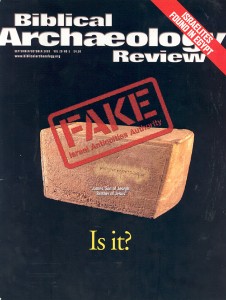Eyewitness Testimony
Parts of Exodus Written Within Living Memory of the Event
How old are the Bible’s narratives of the Exodus from Egypt? Can we really date the texts that preserve those narratives? And if so, what is the oldest Biblical text that discusses the Exodus?
To start with the answer, we can date Biblical texts. And the oldest text attesting the Exodus dates to sometime between 1125 and 1000 B.C.E.
The Exodus occurred, according to the previous article in this issue by the distinguished archaeologist of Egypt, Manfred Bietak, in about 1150 B.C.E. Most scholars have followed the lead of the Bible in placing the Exodus itself in the late 13th century B.C.E. Bietak’s date is somewhat arbitrary, but the formation of an “Exodus tradition” (as he designates it) probably does roughly belong to the 12th century B.C.E. So, unlike much other Biblical material, the earliest attestation of the Exodus in the Bible is almost contemporaneous with the very origin of the tradition! This means that when the Exodus texts were composed, some people were probably still alive who participated in the event or remembered it—whatever it may have been. (Bietak also thinks that King David began his reign around 1020 B.C.E., while others place the start of that reign around 1000, but the variation in chronology here is small.)
How Bietak arrives at his archaeological datings is a matter for another article. But we can begin, now, to tell the story of how we arrive at reasonable conclusions about the dating of Biblical texts.
Already a library member? Log in here.
Institution user? Log in with your IP address.

